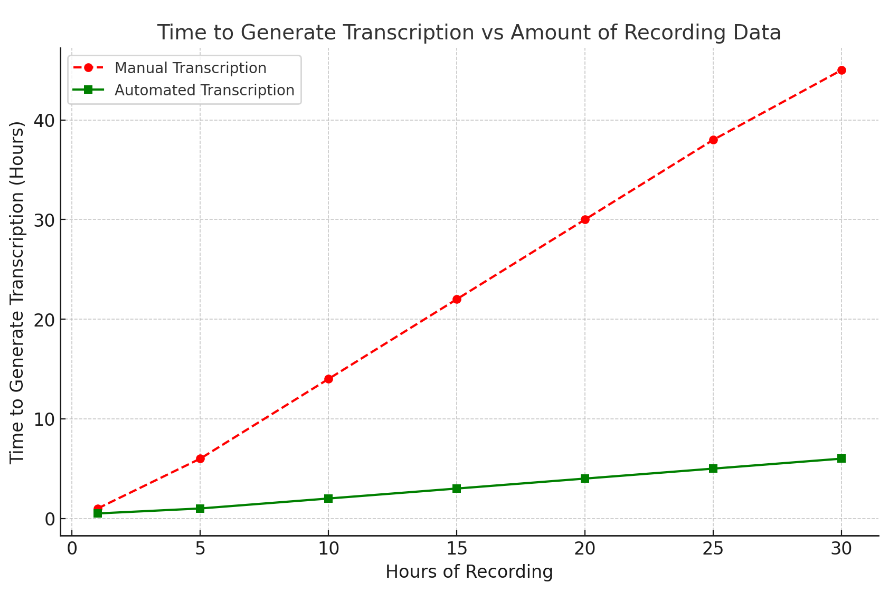The implementation of advanced technologies has significantly transformed the field of arbitration. One of the most impactful innovations is automated arbitration transcription. This advancement not only improves efficiency in the management of arbitration hearings, but also offers multiple benefits in the digital administration and archiving of proceedings with software that we will discuss at the end of this article. We will explore the key advantages of automated transcriptions in the context of arbitration.
Accuracy and Efficiency with Automated Transcriptions
Automated transcriptions makes it possible to accurately capture every word and nuance during arbitration hearings. By using artificial intelligence and machine learning, these tools can produce real-time transcripts with remarkable accuracy. This eliminates or reduces the need for human transcribers, reducing costs and minimizing the risk of errors.
In addition, the efficiency of these technological solutions for arbitrations is remarkable. Automatic transcripts are generated quickly, allowing arbitrators and attorneys to access records almost immediately. This streamlines the review and analysis process, facilitating faster case resolution.
Improved Management of Arbitration Hearings
Arbitration hearing management benefits greatly from automated transcriptions. With these tools, all statements and deliberations are instantly recorded and transcribed, ensuring that every detail is accurately documented. This is crucial in complex arbitrations where every word can have a significant impact on the outcome of the case.
Platforms such as PROBUS that integrate automated transcriptions also offer advanced functionalities such as text searching and tagging. This enables lawyers and arbitrators to quickly locate relevant information within vast volumes of data, improving the preparation and presentation of arguments.

From: own sources
Digital Archiving of Arbitration Proceedings
The digital archiving of arbitration proceedings is greatly enhanced by automated transcription. By digitizing and organizing recordings and transcripts, these platforms allow for secure and accessible storage of all arbitration-related documents. Digital archives are easy to manage and protect, ensuring that confidential information remains secure and can be accessed when needed.
The ability to store and categorize transcripts and recordings also makes it easy to create a detailed history of each case. This not only helps in keeping track of current cases, but also provides a valuable resource for reference in future arbitrations.
Editing Arbitration Hearing Recordings
Editing arbitration hearing recordings is another area that benefits from automated transcriptions. Advanced tools allow users to edit, annotate, and highlight specific segments of the recordings. This is particularly useful for preparing summaries and presenting evidence in a clear and concise manner.
The ability to edit and annotate recordings improves case presentation, allowing attorneys to highlight the most important points and make their arguments more effectively. In addition, digital editing ensures that records are accurate and easy to understand for everyone involved.
Technology Solutions for Arbitrations
Technology solutions for arbitrations are transforming every aspect of the arbitration process. From recording and transcription to hearing management and digital archiving of proceedings, these technologies offer a robust infrastructure that improves efficiency and accuracy.
The adoption of automated transcriptions is just one part of a broader trend toward digitization and automation in the legal field. As more law firms and arbitrators adopt these technologies, the arbitration process becomes more streamlined, transparent and effective.

Conclusion
Automated transcriptions represent a significant advancement in the field of arbitration. By improving the accuracy and efficiency of recording and transcribing hearings, streamlining the digital management and archiving of proceedings, and facilitating the editing of recordings, these technologies are revolutionizing the way arbitrations are handled. Technological solutions such as PROBUS for arbitrations not only increase productivity, but also ensure greater transparency and accessibility, benefiting all parties involved. Digitalization is the future of arbitration, and automated transcriptions are at the forefront of this transformation.
